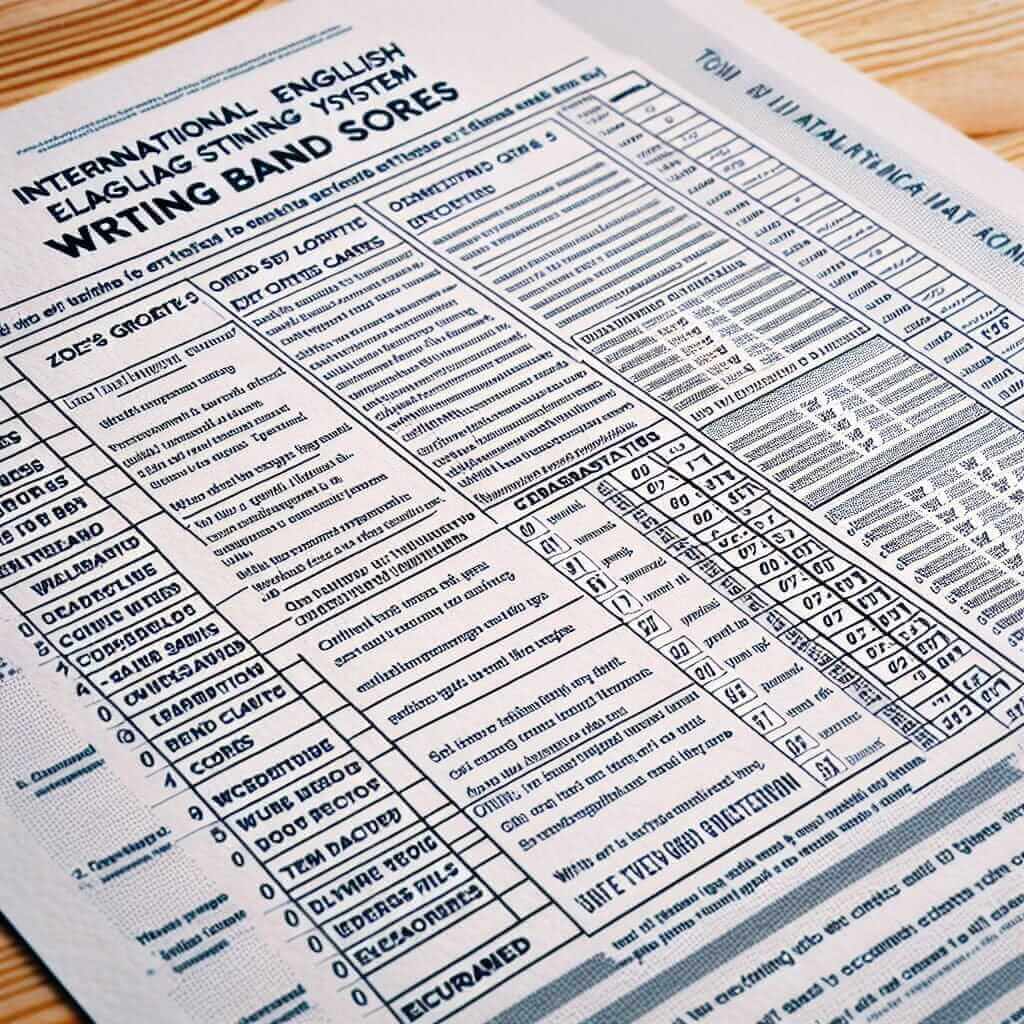For those on the journey to conquer the IELTS, understanding the scoring system, particularly for the Writing section, is as crucial as mastering the language itself. It’s not just about writing well; it’s about writing strategically and effectively to meet the specific criteria that examiners are looking for. This deep dive will equip you with the knowledge to do just that.
Demystifying the IELTS Writing Score
The IELTS Writing test, regardless of whether you choose Academic or General Training, is evaluated across four key areas:
1. Task Achievement (or Task Response): This criterion assesses how effectively you address the prompt. It’s about staying on topic, presenting a clear argument (for opinion essays), and providing well-developed responses that fully answer all parts of the task.
2. Coherence and Cohesion: This focuses on the overall flow and organization of your essay. Examiners look for logical paragraphing, smooth transitions between ideas, and a clear progression of thought from beginning to end.
3. Lexical Resource: Simply put, this assesses your vocabulary. Examiners analyze the range and precision of your word choice, your ability to use less common vocabulary naturally, and your avoidance of errors in word form or usage.
4. Grammatical Range and Accuracy: This criterion examines your command of English grammar. It evaluates your ability to use a variety of sentence structures accurately and appropriately, along with your overall control of grammatical elements.
Each of these four criteria carries equal weight (25%) in determining your final Writing band score.
How Your Essay is Scored
Your writing is graded by certified IELTS examiners who undergo rigorous training and standardization. They use detailed assessment criteria and are not looking for a single “perfect” essay, but rather evaluating your ability to communicate effectively in English.
While the exact calculation involves a conversion table, you can generally think of it this way: your scores across the four criteria are averaged to produce your final band score for the Writing test.

Tips to Elevate Your Writing Score
1. Master the Rubric: Familiarize yourself thoroughly with the IELTS Writing band descriptors. These descriptors outline the specific requirements for each band score (from Band 4 to Band 9). Understanding these expectations is key to tailoring your writing accordingly.
2. Practice Makes Progress: Regular practice is invaluable. Aim to write essays under timed conditions to simulate the exam environment. Seek feedback from experienced IELTS instructors or language partners to identify areas for improvement.
3. Expand Your Vocabulary: Make a conscious effort to enrich your vocabulary. Don’t just memorize lists of words; learn how to use them accurately and naturally in context.
4. Grammar Matters: Solid grammar is non-negotiable. Review grammar rules regularly and practice using a variety of sentence structures in your writing.
5. Structure is Key: Organize your essays logically with clear introductions, well-developed body paragraphs, and concise conclusions. Use linking words and phrases to ensure smooth transitions between ideas.
Example: Identifying Strengths and Weaknesses
Let’s imagine you received the following feedback on your essay:
- Task Achievement: Good – You addressed all parts of the task.
- Coherence & Cohesion: Satisfactory – Your essay was generally well-organized, but some transitions could be smoother.
- Lexical Resource: Good – You demonstrated a good range of vocabulary.
- Grammatical Range & Accuracy: Needs Improvement – There were some grammatical errors that affected clarity.
This feedback tells us you understand the task and use good vocabulary. However, you need to focus on improving your grammar and making your writing more cohesive.
Conquering the IELTS Writing Challenge
Scoring well on the IELTS Writing test is achievable with focused effort and a strategic approach. By understanding the scoring criteria, diligently practicing your writing skills, and seeking expert guidance, you can enhance your performance and confidently approach exam day.